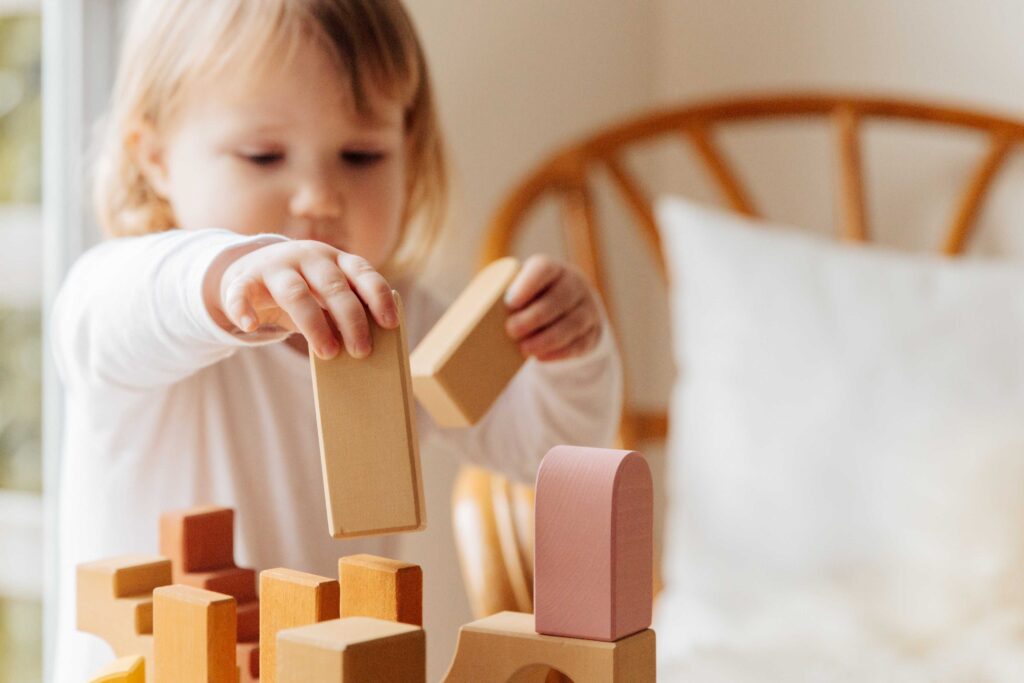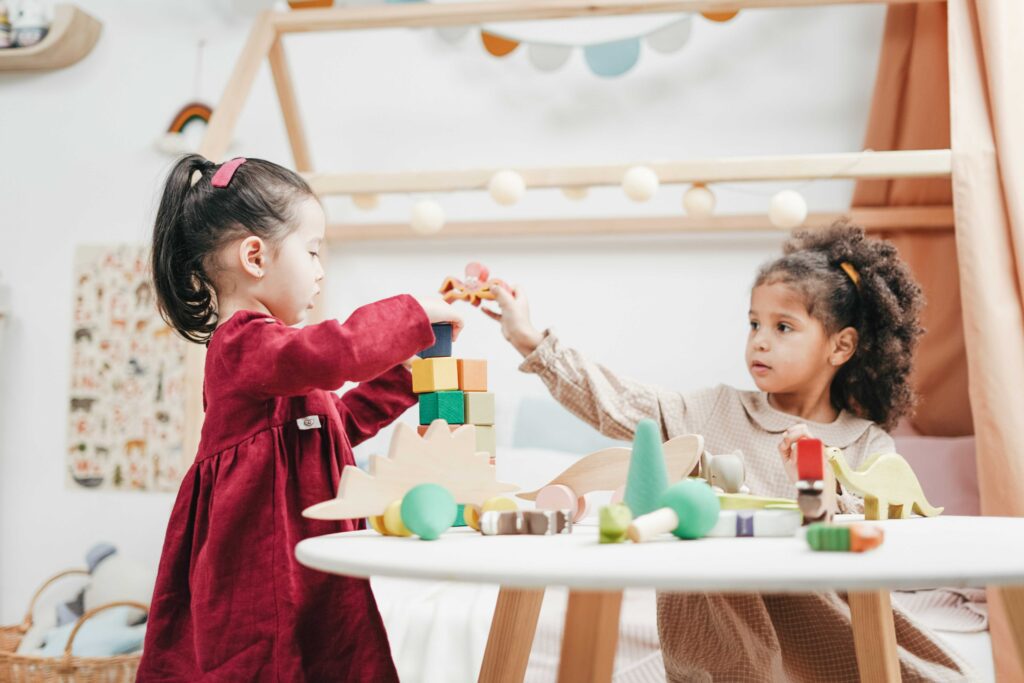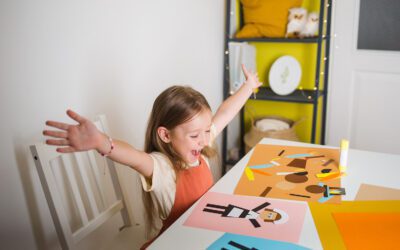Growing children rely on their senses from birth onward to explore and make sense of their surrounding world. Through sight, hearing, touching, tasting, smelling, and even moving, young children process the information obtained through their senses, which informs their development. By enriching infant’s and young children’s experiences with sensory play activities, families can support their little one’s brain development.
Sensory play can take many forms. Parents can use household items or DIY toys to encourage toddlers to understand better and navigate their world. The different forms of sensory play can enhance brain development in many ways, which we’ll explore here. Learn how to engage your child with fun sensory development activities so that you can spur their development and nurture their well-being.
What is Sensory Play?
Sensory play refers to virtually any activity that can stimulate a child’s senses. It might involve splashing their hands during bathtime or touching the different textures featured in a “touch and feel” book. Children typically find these types of activities fun without knowing that the sensory information they obtain from these activities helps forge stronger connections in their brains to process and respond to sensory stimulation.
Sensory play helps children create a context for their sounds or the textures they come into contact with. They learn what the different sounds are and how to respond or not respond to them. For instance, when a car horn blares outside the home, a toddler might cry the first time they are disturbed by it. But after processing it and realizing this sound does not impede or impact them personally, they may learn to ignore it.
Linked to healthy childhood development, sensory play helps introduce children to their world in a safe, fun-filled environment. As kids develop an awareness of different sensations, they may become more excited to build on their developing knowledge base and better explore their surroundings through more playtime fun.
Benefits of Sensory Play for Brain Development
By engaging in sensory play with your young children, you can better prepare them for the world. During their initial years of life, children’s brains grow quite rapidly. Parents can support this healthy development by helping children safely explore their world through each of their senses. Some of the key benefits your child is likely to experience through sensory play include:
Development of Fine and Gross Motor Skills
As we know, children aren’t born with command over their motor skills. It takes time and practice to develop them. Learning how to manipulate their fingers and hands, use their arms for throwing, and their fingers for properly holding a pencil requires practice. The better developed your child’s fine and gross motor skills, the better they’ll be prepared for school or even enjoy playing at the park or with their toys more fully.

Problem-Solving Skills
Life is filled with problems and challenges for humans of all ages. Solving them is integral to the human experience. Through play, toddlers can practice interpreting the world using their senses to solve small challenges such as building a block tower that doesn’t fall or sorting items with different shapes or colors. As they develop a knack for solving minor problems, they enhance their ability to solve problems of great difficulty.

Social Interaction
Sensory activities can help children develop essential social interaction skills such as making eye contact, reading emotions in faces, or listening to others. By developing strong social skills, children may interact more comfortably and successfully with other children.

Language Development
Language development happens gradually, but the more caregivers can promote this development, the better their child’s language skills. Good language skills will allow kids to communicate more effectively as they age. Sensory exploration has a significant impact on language and speaking domains of child development. Receptive and expressive language are some of the areas of language development that can be worked upon when a child engages in Sensory play. You can help your toddler using fun descriptive words while playing to introduce new vocabulary and promote sentence formation. Pretend play can really improve your child’s expressive language skills and verbal expression

Always Keep Progressing
We are a private speech-language pathology and occupational therapy practice in Miami, Florida, dedicated to providing personalized therapy to children of all ages. Our trained bilingual occupational therapists provide services specifically tailored to each individual child to help grow their independence and fine-tune their skills. Contact us for an evaluation if you are interested in our services!
For more resources check our other blogs and follow us on Facebook, Instagram, and LinkedIn!
Image Sources:
Cover Photo by Tatiana Syrikova from Pexels
Motor Skills Photo by Tatiana Syrikova from Pexels
Problem Solving Skills Photo by Tatiana Syrikova from Pexels
Social Interaction Photo by cottonbro from Pexels
Pretend Play Photo by Kha Ruxury from Pexels
Reproduced with permission of the author.
Original Blog Available at: Sensory Play For Toddlers Using Regular Household Items (porch.com)
Written by Hermann Samano






0 Comments